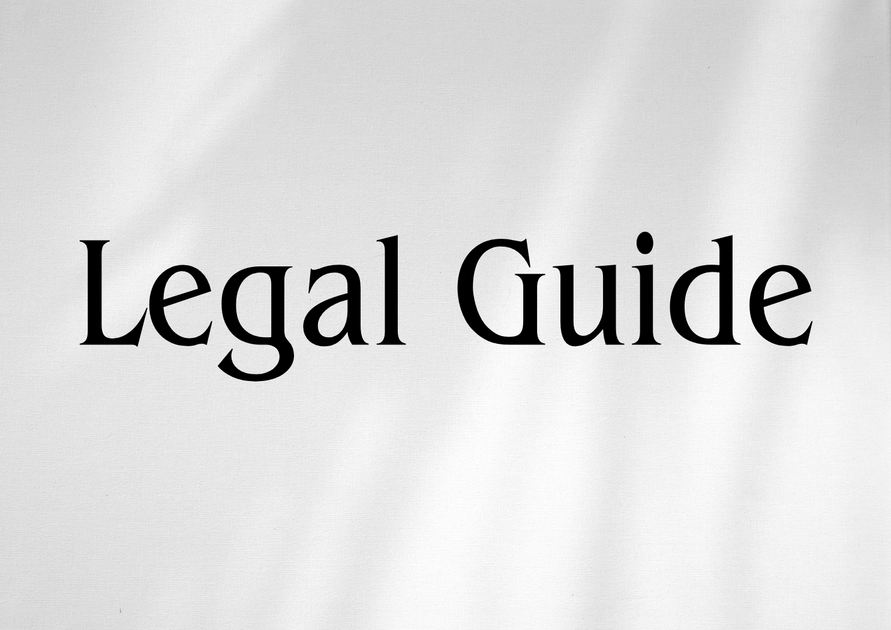Introduction: Deciphering Ultimate Beneficial Ownership for the UAE Legal and Business Landscape
In recent years, Gulf Cooperation Council (GCC) nations have intensified their focus on transparency, anti-money laundering (AML), and counter-financing of terrorism (CFT). One cornerstone of these compliance efforts is the concept of Ultimate Beneficial Ownership (UBO). While the United Arab Emirates (UAE) took an early lead with Cabinet Resolution No. 58 of 2020 on UBO—complemented by further guidance and updates—the Kingdom of Saudi Arabia (KSA) has aligned its legal landscape with international best practices, introducing its own set of UBO rules and regulations.
This article provides an in-depth, consultancy-grade analysis of the UBO regime under Saudi law, tailored for entities, executives, and legal practitioners in the UAE with commercial or operational ties to the KSA. We decode key regulations, compare the old and new frameworks, highlight the risks and compliance imperatives, and bridge the practical steps UAE-based organisations must take, given the evolving GCC compliance ecosystem. With new updates on the horizon and cross-border regulatory enforcement intensifying, this guide offers essential insights for those seeking to maintain competitiveness and reputation in the region.
Why is this topic so pivotal for UAE stakeholders? Increasing regulatory cooperation across GCC jurisdictions means that UBO obligations do not stop at the border. Whether you are a UAE-based multinational expanding into Saudi Arabia, an investor navigating the complexities of beneficial ownership, or a compliance officer responsible for AML strategy, understanding Saudi UBO rules is crucial for sustainable compliance, risk management, and commercial success in 2025 and beyond.
Table of Contents
- Understanding Ultimate Beneficial Ownership: A Regional View
- Key UBO Regulations under Saudi Law
- Comparison: UAE vs. Saudi UBO Regimes
- Detailed Analysis of Current Saudi UBO Requirements
- Compliance Risks and Enforcement in KSA
- Compliance Strategies for UAE-Related Businesses
- Case Studies and Practical Examples
- Future Perspectives and Best Practices
- Conclusion: Staying Ahead in the GCC Compliance Landscape
Understanding Ultimate Beneficial Ownership: A Regional View
What is Ultimate Beneficial Ownership?
Ultimate Beneficial Ownership refers to the natural person(s) who ultimately own or control a legal entity, whether directly (through a shareholding or voting rights) or indirectly (via arrangements such as trusts, nominees, or chains of ownership). UBO identification is a global AML/CFT standard set by the Financial Action Task Force (FATF) and a critical compliance obligation in the UAE, Saudi Arabia, and wider GCC.
Why Is UBO So Important?
Transparent UBO identification prevents the abuse of legal vehicles for illicit activities, including money laundering, terrorist financing, tax evasion, and fraud. For businesses operating cross-border, consistent compliance is not only a legal imperative but a commercial one—affecting banking relationships, investment flows, and reputation.
Key UBO Regulations under Saudi Law
Evolution of Saudi UBO Laws
The KSA’s approach to UBO was historically governed by general anti-money laundering provisions under the Saudi Anti-Money Laundering Law (Royal Decree No. M/20 of 2017) and the Implementing Regulations (December 2017). However, in alignment with international standards and following the FATF Mutual Evaluation Report (2020), Saudi authorities issued a dedicated UBO regulation:
- Ministerial Resolution No. 1961 dated 05/07/1442H (corresponding to 17 February 2021) by the Saudi Ministry of Commerce: This introduced a mandatory UBO Register for all commercial entities, laid down definitions, reporting obligations, and sanctions for non-compliance.
- Subsequent Circulars from the Saudi Central Bank (SAMA) and the Capital Market Authority reinforce UBO requirements in regulated sectors such as banking, insurance, and securities.
Core Features of the Saudi UBO Regime
- Mandatory UBO Disclosure: All companies (including LLCs, JSCs, partnerships, and branches of foreign entities) must identify and disclose their UBOs to the Ministry of Commerce via the electronic UBO Register, now fully integrated into the Saudi commercial registry (CR) portal.
- Definition of UBO: Any natural person who owns or controls directly or indirectly 25% or more of a company’s shares, voting rights, or decision-making power, or the natural person who otherwise exercises ultimate effective control.
- Ongoing Disclosure and Annual Updates: UBO information must be maintained and updated annually, and any change must be disclosed within a defined period (often 30 days) following the change.
- Verification and Audit Trail: Companies are required to keep records that demonstrate the steps taken to verify UBO information, making them available for inspection by authorities.
- Sanctions: The law provides for administrative fines, business license suspension, and potential criminal liability in cases of willful concealment or false disclosure.
Table: Key Saudi UBO Laws and Regulations
| Law / Regulation | Key Provisions | Enforcement Authority |
|---|---|---|
| Anti-Money Laundering Law (M/20 – 2017) | Defines ML/CFT obligations, mandates identification of beneficial owners, powers for inspection and penalties. | Saudi Money Laundering Permanent Committee |
| Ministerial Resolution No. 1961 (2021) | Dedicated UBO register, firm UBO definition, annual reporting, sanctions | Ministry of Commerce |
| SAMA Circulars & CMA Rules | Sector guidance on UBO reporting for financial institutions | SAMA, Capital Market Authority |
Comparison: UAE vs. Saudi UBO Regimes
Similarities
- Both UAE and Saudi Arabia define UBOs as natural persons owning/controlling 25% or more, or exercising effective control.
- Mandatory UBO disclosure to a dedicated government register.
- Annual and ad hoc update requirements when ownership changes occur.
Differences
| Feature | UAE Regime (Cabinet Resolution No. 58/2020) | Saudi Regime (Ministerial Resolution No. 1961/2021) |
|---|---|---|
| Coverage | All commercial entities, except fully state-owned and those in financial free zones | All commercial entities, including foreign branches |
| Threshold | 25% ownership or control | 25% ownership or control |
| Register Accessibility | Not public, accessible to authorities | Not public, accessible to authorities |
| Filing Deadline | Within 60 days of company registration, then annual | Within company registration, then annual, plus 30 days for changes |
| Sanctions | Administrative (AED 50,000+), suspension, dissolution | Administrative fines, license suspension, criminal referral |
*Insert visual: A Venn diagram showing overlap and divergence of UAE and KSA UBO compliance frameworks*
Detailed Analysis of Current Saudi UBO Requirements
Scope of Application
The Saudi UBO rules apply to a wide spectrum of legal persons: Limited liability companies (LLCs), joint stock companies (private/public), limited partnerships, professional companies, single-shareholder companies, and local branches of foreign entities. Non-profit associations and similar bodies may also be caught where relevant to AML/CFT objectives.
Who Qualifies as a UBO?
- The natural person(s) holding 25% or more of shares, capital, or voting rights.
- If no one meets the 25% threshold, control (by contract or otherwise) is determinative.
- If UBO cannot be identified, the natural person(s) in senior management positions are recorded as UBOs (so-called ‘default UBO strategy’).
Practical Steps for Compliance
- Map direct and indirect ownership structures, including nominee, trust, or fiduciary arrangements.
- Verify personal identity, citizenship, and residency data of UBO(s).
- Prepare official UBO disclosure forms via the Ministry of Commerce’s online portal.
- Update disclosures on a yearly basis and promptly upon any change in ownership/control.
- Retain a documentary audit trail (e.g. share registers, trust deeds, board minutes).
- Respond swiftly to queries or audits by Saudi authorities.
*Insert table: UBO Identification Checklist for Saudi Entities*
Specific Considerations for Foreign and UAE Investors
- Any UAE company with a Saudi subsidiary or joint venture must ensure Saudi UBO filings are compliant, even if parallel filings are made in the UAE.
- Ultimate UBO may be an individual residing outside the GCC; companies must conduct ‘look-through’ analysis in complex corporate groups.
- Failure to identify a UBO does not release the entity from compliance—senior managers are then deemed responsible.
Compliance Risks and Enforcement in KSA
Penalties for Non-Compliance
| Violation | Penalty |
|---|---|
| Failure to file/register UBO | Administrative fine (up to SAR 1 million), business suspension |
| False or misleading UBO information | Criminal referral, higher fines, reputational consequences |
| Failure to update UBO changes | Progressive fines, potential license withdrawal |
*Insert visual: Penalty escalation flowchart*
Regulatory Inquiries and Inspections
Saudi authorities actively audit UBO filings. Routine queries may involve requesting supporting documentation (such as notarial deeds, passports, shareholder agreements). Failure to respond can trigger further investigation and enforcement.
Compliance Strategies for UAE-Related Businesses
Proactive Governance Steps
- Conduct regular internal reviews of group ownership structures.
- Benchmark Saudi and UAE UBO requirements for all relevant subsidiaries and affiliates.
- Develop group-wide UBO policies reflecting the strictest applicable standard.
- Automate reminders for annual or transactional updates to UBO registers.
Board and Senior Management Responsibilities
Senior management and directors in both KSA and UAE entities remain personally liable for failures in UBO compliance frameworks. Boards should:
- Demand periodic UBO reports from compliance officers.
- Integrate UBO checks into onboarding of new joint venture partners or shareholders.
- Seek legal advice on the impact of complex cross-border holding structures.
Practical Checklist: Achieving UBO Compliance for KSA & UAE Operations
| Task | Recommended Frequency |
|---|---|
| Map ownership/control structures | Annually and upon major change |
| Obtain and verify UBO IDs | At onboarding and annually |
| File UBO disclosures (KSA & UAE) | Per statutory deadlines |
| Train staff on UBO rules | Annually |
| Audit/document compliance trail | Continuously |
*Insert visual: Group UBO compliance process diagram*
Case Studies and Practical Examples
Case Study 1: UAE Holding Company with Saudi Subsidiary
A UAE-based conglomerate (ABC Holdings LLC) owns a 60% stake in a Saudi LLC. The remaining 40% is owned by an individual based in the US. The direct Saudi subsidiary must disclose its UBOs in the KSA to include the natural persons who are the ultimate owners of ABC Holdings and the US-based shareholder, following the 25%+ rule. Documents must trace the chain from the UAE to the real individuals, not merely to the UAE parent.
Case Study 2: Multi-Tiered Trust and Nominee Structures
Company XYZ KSA, owned 30% by an offshore trust (whose settlor is a UAE-resident), 45% by a UAE entity, and the balance by dispersed retail investors. Thorough investigation leads to three individual UBOs (the trust settlor and two natural person owners of the UAE entity), plus a default to senior managers if beneficial ownership cannot be attributed due to nominee ‘opacity’.
Case Study 3: Corrective Action following Regulatory Review
A Saudi regulator queries a UAE-based investment firm’s UBO disclosure in its local subsidiary, citing lack of clarity in the ownership trail. The group retains local and UAE counsel, revises its filings to include beneficiary passport copies and notarised resolutions, thus re-establishing compliance and avoiding penalties.
Future Perspectives and Best Practices
Emerging Trends
- Technological Integration: KSA is rolling out enhanced digital UBO registers for seamless compliance and automated validation.
- Convergence of GCC Regulations: 2025 may see increased harmonisation between the UAE, Saudi Arabia, and other GCC states, encouraging consistent cross-border filings and information sharing.
- Stricter Enforcement: Both countries are expected to boost penalties and audit frequency, making ‘paper compliance’ insufficient.
Best Practices for UAE Businesses Engaging with KSA
- Adopt a ‘highest common standard’ approach to UBO compliance across all GCC jurisdictions.
- Engage qualified legal counsel with dual UAE-KSA expertise for bespoke structuring advice.
- Implement digital compliance tools to automate monitoring, reporting, and recordkeeping.
- Coordinate UBO policy with corporate banking, tax, and regulatory teams to avoid internal blind spots.
- Maintain bilingual (Arabic-English) compliance documentation to expedite regulatory dialogue.
Conclusion: Staying Ahead in the GCC Compliance Landscape
The UBO regulatory regimes in the Kingdom of Saudi Arabia and UAE are undergoing unprecedented development, reflecting global shifts towards transparency, anti-financial crime, and heightened enforcement. For UAE-based clients with operations, investments, or counterparties in Saudi Arabia, understanding and implementing Saudi UBO rules is not optional—it is a strategic necessity.
Proactive compliance, robust internal policies, and regular engagement with legal experts are no longer best practices; they are prerequisites for sustainable business. As both UAE and Saudi authorities continue to refine and tighten compliance expectations in 2025 and beyond, those who invest in governance and transparency will reap the greatest benefits—access to capital, regulatory goodwill, and commercial trust.
For further guidance on cross-border UBO compliance or to conduct a UBO health-check for your organisation, consult our professional team for a tailored advisory. Staying ahead means more than keeping pace—it means anticipating change, mitigating risks, and aligning your business with the future of GCC commerce.




